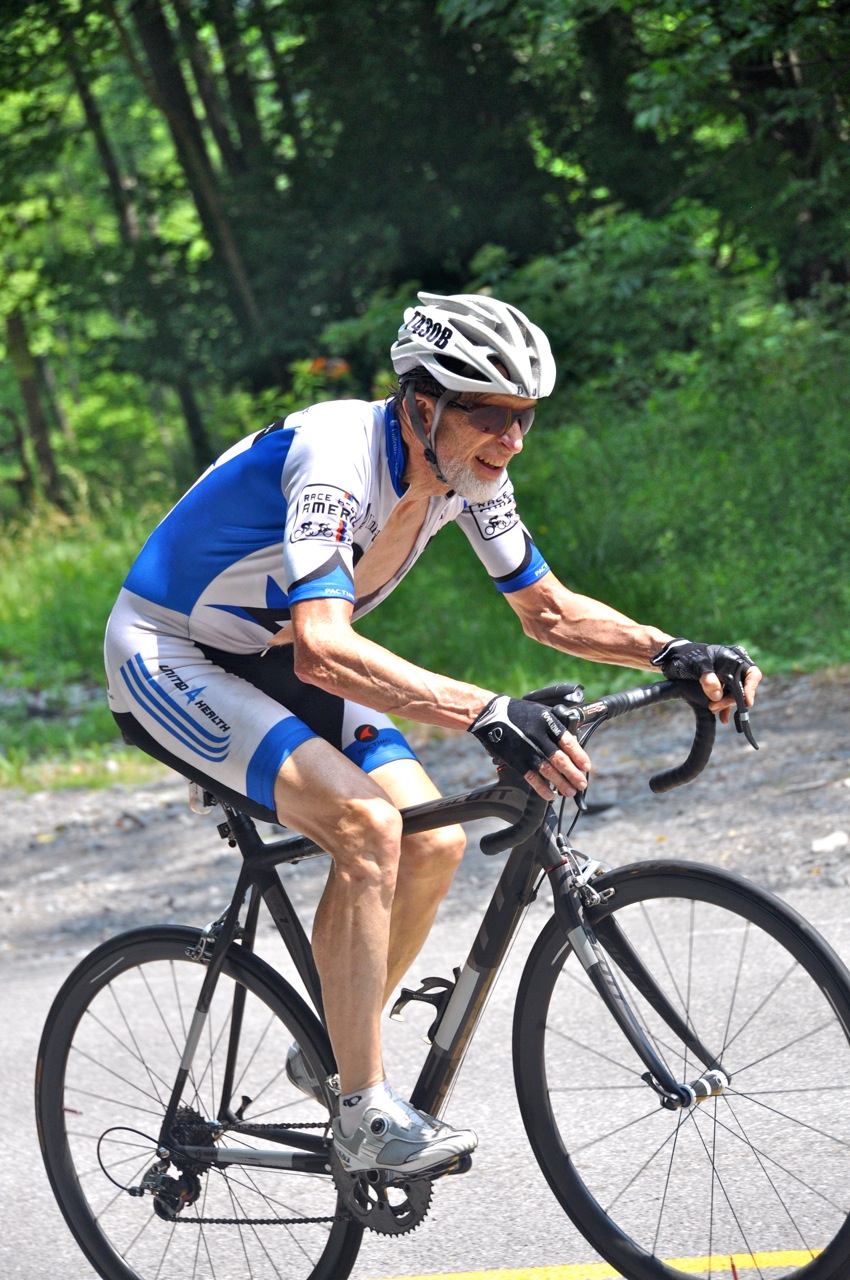To best understand Durward Higgins' recent accomplishment, you have to do some number-crunching.
The Chattanooga resident joined three comrades to break a record for bicycling coast to coast, or 3,000 miles, in Race Across America.
They broke records in the 60-and-older and 70-and-older categories by four hours and more than a day, respectively. Overall, they traversed the United States in six days, 13 hours and 13 minutes.
But the most important number is 70 -- the age at which Higgins accomplished the feats.
A retired field engineer with General Electric, Higgins was approached by New York native Michael Patterson at the 2010 Hunstman Senior Games in Utah.
Patterson was eager to develop a team of senior citizens to participate in Race Across America and shatter the 2004 record in the 70-and-older category. Secretly, Patterson and crew also hoped to break the record in the 60-and-older category, he said.
Higgins had beat Patterson in about five prior races, but Patterson finally turned the tables at the Utah games.
"That's when I asked him to join," said Patterson, also 70. "Durward is an absolute bull on the road. Relentless -- he can go forever."
Race Across America started in 1982 with four people who rode from Los Angeles to New York City. It has grown into one of the longest-running and respected endurance events in the world. Riders race against the clock instead of each other.
Their group, Team United 4 Health, was the only 70-plus team this year. The remaining teammates are David Burnette, 72, of Norwich, Conn., and 68-year-old Don Metz, of Lyme, N.H., who was Higgins' riding buddy.
The race kicked off with a parade-style, seven-mile opening in Oceanside, Calif. From there, two team members were traveling on a bike at all times in 150- to 200-mile shifts. They needed to average 19 mph to beat the record. The bikers would switch between road and time-trial bikes, depending on the terrain, Higgins said.
"You ride day and night. You never stop," he said. "When we finished our shift, we'd end up at the moving camp that was temporarily parked at a predetermined location. When we'd get off the bike, we'd immediately get our massage, take a shower and eat within 90 minutes. Then the camp hits the road and starts traveling to the next campsite."
Resting didn't come easily in the rocking RV, Higgins said.
The trip also brought a variety of temperatures and terrains.
"Crossing the California desert at night was one of the most exhilarating experiences," Higgins said. "It's really cool, and you're going so fast. It was really exciting."
By contrast, warmer areas caused some problems.
"Some of the pavement, especially a lot of the states where the temperatures get very high, would crack," Higgins said. "They were what I call 'girth cracks.' They cross the whole road and you can't miss them."
Higgins' last shift came in Maryland. The whole group paraded into Annapolis, Md., at 4:42 a.m. May 23 to end the race.
Higgins and crew knew Team United 4 Health broke the record before they reached the finish line, so it was a bit "anticlimactic," but still a reason for celebration, he said.
"We were all gunning for this for [20] months," Higgins said. "So much training, plotting and planning went into this."
Waiting at the finish line was his ever-supportive wife, Earline Higgins, who helped with his 20 months of pre-race training, making sure her husband ate a nutritious, well-balanced diet. A stationary bicycle in the living room -- "right in front of the TV" -- allowed him to monitor his heart rate and enjoy television with his wife while training, she said.
"All the wives were there at the finish line," Earline Higgins said. "[The bikers] looked great and were smiling. They didn't look like they just rode 3,000 miles."
Back in Chattanooga, Durward Higgins is feeling the effects of the record-breaking ride, fighting a small lung infection.
"I don't expect this to get me down, though," he said.
